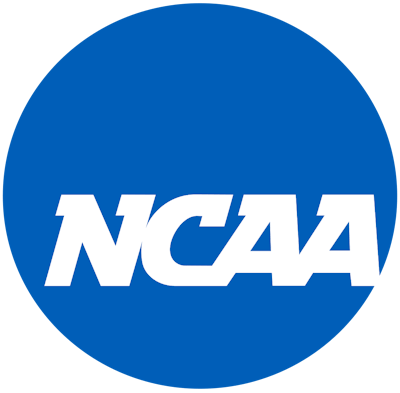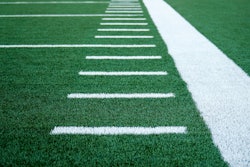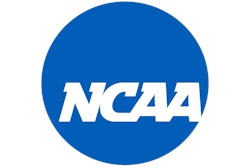
Michigan's Athletes Connected program is all about listening, responding and making an impact.
Developed in 2014, Athletes Connected seeks to increase awareness of mental health issues, reduce the stigma of help-seeking and promote positive coping skills among student-athletes. The program was developed with initial funding through the NCAA Innovations in Research and Practice Grant Program, which seeks to support research and data-driven pilot projects designed to enhance student-athlete psychosocial well-being and mental health. Athletes Connected was a member of the first class of proposals to receive funding from the NCAA grant program.
Nearly a decade later, dozens of schools have received funding through the program and have developed projects centered around student-athlete well-being and advocacy. Research topics have included managing transitions, identity development, stress management, substance use, bystander intervention, cultivating healthy relationships, career exploration and sport exit strategies.
The idea for the Athletes Connected program was born out of a relationship between the Michigan Eisenberg Family Depression Center, the Michigan athletics department and the Michigan School of Public Health. Stephanie Salazar, manager for outreach and education at the Michigan Eisenberg Family Depression Center, was just one of the key partners who recognized a need to better support student-athlete mental health on campus and began having conversations with colleagues about how to provide this support.
"We really saw the need, and it was sort of perfect timing with the NCAA (Innovations in Research and Practice) Grant," Salazar said. "We decided to all work together to do some of this work. I think it was a really unique collaboration because it was three different departments working together. But I think it worked really well."
To launch the research program, the Athletes Connected team asked student-athletes about their perceived barriers to help-seeking behaviors, which provided a deeper understanding of stigma and potential strategies for combating it. The grant then allowed the team to present educational material about mental health resources to almost 900 student-athletes at Michigan during the initial year. The education sessions included sharing videos of Michigan student-athletes who reflected on positive help-seeking experiences, as well as videos about support groups and coping skills. The pilot program also included wellness drop-in education sessions about relevant issues facing student-athletes.
As the landscape of college athletics has continued to change and evolve since the first year of the program, the Athletes Connected team has remained committed to its mission of asking questions and listening to student-athletes. Rachel Amity, interim director of student-athlete well-being at Wyoming and former assistant director of Athletes Connected and athletics counselor at Michigan, played a key role in consistently adapting the program based on relevant topics and current needs.
"The needs of student-athletes have changed over the years," she said. "Athletes Connected has continued to morph since that first year, and that ability has been necessary for the growth and sustainability of the program."
The Athletes Connected team constantly evaluates the effectiveness of the program and checks in with student-athletes often to ask for feedback and make necessary adjustments.
While each varsity team still receives a baseline education, the staff also provides customized educational material based on specific team needs. The program has expanded to include various components such as restorative yoga sessions, online articles about relevant challenging topics, social media videos and a newsletter. This evolution has brought success, as the program has continued to make a positive impact and student-athlete involvement has increased.
"I feel like the stigma has reduced and we are hearing that students are more willing to talk about (mental health)," Salazar said. "There are a lot more student-led initiatives, as well. Some teams are now hosting their own mental health awareness games and other things like that. It's been great to see."
As the NCAA Innovations in Research and Practice Grant Program emphasizes the importance of funded programs creating potential for positive impact at other NCAA member schools, Athletes Connected has prioritized sharing information and resources to help those who hope to implement similar programs. Staff members offers direct consultation and support. They even created a program manual that is accessible to anyone who visits the Athletes Connected website. The free resource covers the history and structure of the program, best practices, lessons learned from staff over the years and frequently asked questions.
While Amity's no longer at Michigan, she knows her experiences with Athletes Connected will always benefit how she strives to better the lives and experiences of student-athletes.
"I feel honored to have contributed to and participated in a program that has been able to make tangible positive contributions to the student-athlete experience at Michigan and beyond," she said. "Some of the biggest takeaways I hope to bring with me to my new role and any future roles are the importance of collaboration and input directly from the athletes, the need for ongoing evaluation and a willingness to make adjustments and get creative."
Back on Michigan's campus, Salazar aspires to continue the development of peer-led initiatives and hopes that the Athletes Connected program continues to grow and evolve while prioritizing the needs of student-athletes.
"The team hopes to continue to hold the student-athlete voice central as we work in partnership to further decrease stigma, positively impact campus culture and normalize the spectrum of mental health as part of the whole student experience," she said. "Time flies when you're having fun. I think it's pretty remarkable that a relatively small grant almost 10 years ago has been able to continue for so long and be able to be responsive to the needs of students. I'm really grateful for the opportunity."
The NCAA is currently accepting preliminary grant proposals from schools from all three divisions for the 2024 NCAA Innovations in Research and Practice Grant Program. Grant proposal submissions will be accepted until Jan. 12.




































